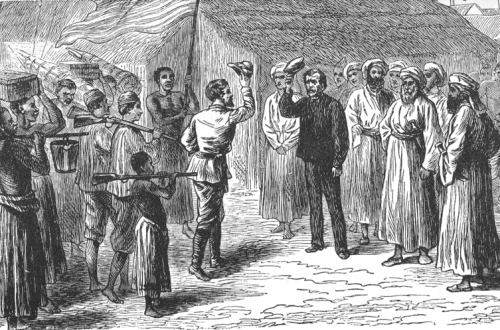This is a cross-post from Airforce Amazons
The story so far:
Following a tweet where he described issues of abortion and antisemitism as ‘distractions’ in the context of Venezuela’s recent election, Jonathan Glennie has been getting some criticism on a number of blogs, including Bob’s place where I was amongst the commenters. The tweet was in response to Carl Packman, author of this blog post written just prior to the election. In his defence Mr Glennie pointed to an earlier tweet saying ‘raising the flag against anti-semitism in the left in Latin America is worth doing..’ and argued that he only meant distractions in the particular context of this election.
Today Jonathan Glennie tackled the question of his commitment to women’s rights in a Twitter exchange with yours truly, and pointed to a post of his on the Guardian site: Why there’s no reason to fear feminism.
He presented this as evidence of his steadfast feminism, but it seems to me ill suited as such. Its argument is presented in vague terms without specific examples, but it goes like this:
– Imposing values is bad feminism, asking questions while not proposing solutions is good feminism.
– Coupling women’s rights to development aid has been counter-productive.
– Some Western feminists arrogantly impose foreign solutions and dismiss local women’s views as unenlightened.
– Imposing women’s rights from a position of power (financial, political or educational) is problematic.
‘Feminists need to humbly reassert principles of equality of opportunity, without suggesting we know what responses particular societies should adopt,’ he writes. Humbly.
But the most curious paragraph appears free-floating near the start. He writes, ‘What does it mean when staunch conservatives express themselves so comfortably in the language of women’s rights and gender equality? Might the radical nature of the movement be watered down to mean something more politically palatable but less transformative in its objectives?’
So, the best feminism stays safely on the left side of the fence, doesn’t try to force change, asks questions but gives no answers, and ‘is also responsive and caring, rather than hectoring and exaggerated..’ Yes, responsive and caring, rather than hectoring.
All of this is accompanied by warm words of support for feminism in theory: it’s great that women’s rights ‘are at the heart of political debate’, ‘principles.. at the heart of feminism are non-negotiable’, and there’s ‘no problem with holding views passionately.’
He closes by quoting an unnamed academic who values thinking above doing: ‘“Embedding a way of thinking, or being, matters more than achieving a specific set of policy proposals,” one feminist academic told me, “and is much more powerful in the long term.”’ Out of regard for some of the better academics present in this debate, I’ll bite my tongue!
In short, theoretical feminism is great as long as feminists don’t actually try to use Western power to realise women’s rights globally.Have I got it right? Well, I think he’s got it wrong.
Missing from this are any concrete examples of how linking women’s rights to development aid has been bad, or any examples of where local women have been ‘assumed to be living in a kind of mental slavery’ because they disagreed with arrogant Westerners imposing women’s rights.
Missing also is any recognition of those women in developing countries who happen to agree with Western promoters of women’s rights, and who often run great risks by fighting for their rights in co-operation with Westerners.
Jonathan Glennie seems to suggest that women in developing countries should be offered only solidarity of words rather than solidarity of power.
Without clearly defined targets for criticism, his post reads like a broad-brush smear of Western promoters of global women’s rights, and a negation of the women in developing countries who choose to work with them.
But rather than be wholly critical, I’d like to help out with one concrete example of a Western organisation that self-identifies as feminist and that went to some length to dismiss the views of women in a particular developing country, women who didn’t support that organisation’s own preferred solution.. I give you the old comedy favourite, Code Pink’s 2009 trip to Afghanistan. Code Pink were for solidarity of words, against solidarity of power, but when Afghan women disagreed, Code Pink ignored them. Now where does that story fit into Mr Glennie’s narrative?


